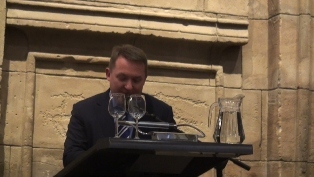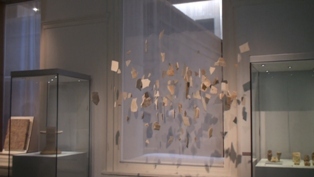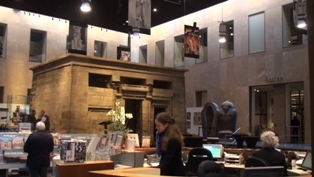Human suffering in times of war often makes us forget that cultural heritage suffers during violent conflicts. Only when peace has returned, it becomes clear what has been destroyed – on purpose or accidental -, what has disappeared and what is left.
The artist Azad Karim (1954, Arbil, Kurdistan, Iraq) is extremely aware of the vulnerability of cultural heritage through his Kurdish background. Although he has worked and lived in Slovnia since the 1970s, what happens in the Near East still shakes him to the core. The tragic destruction of cultural heritage in the area between Euphrates and Tigris are constantly on his mind.
In the exhibition Lost Heritage Azad Karim pays homage to lost heritage, and especially the lost heritage of the Middle East. The Buddha’s of Bamiyan and the plundering of the museum in Bagdad are dramatic examples. To cope with his feelings concerning this destruction, he recreates this lost heritage symbolically, only to destroy it again. The bang with which the artwork is obliterated, reverberates deep into the soul. The shards, covered in symbols and memories of the civilisations of the Near East, are collected by Azad Karim and made into mobiles.
The work of Azad Karim represents an offering of his own artworks, to raise awareness for the loss and destruction of material heritage all over the world, for ever lost to humanity.
Hanneke Kik
 |
 |
 |
Back
Home